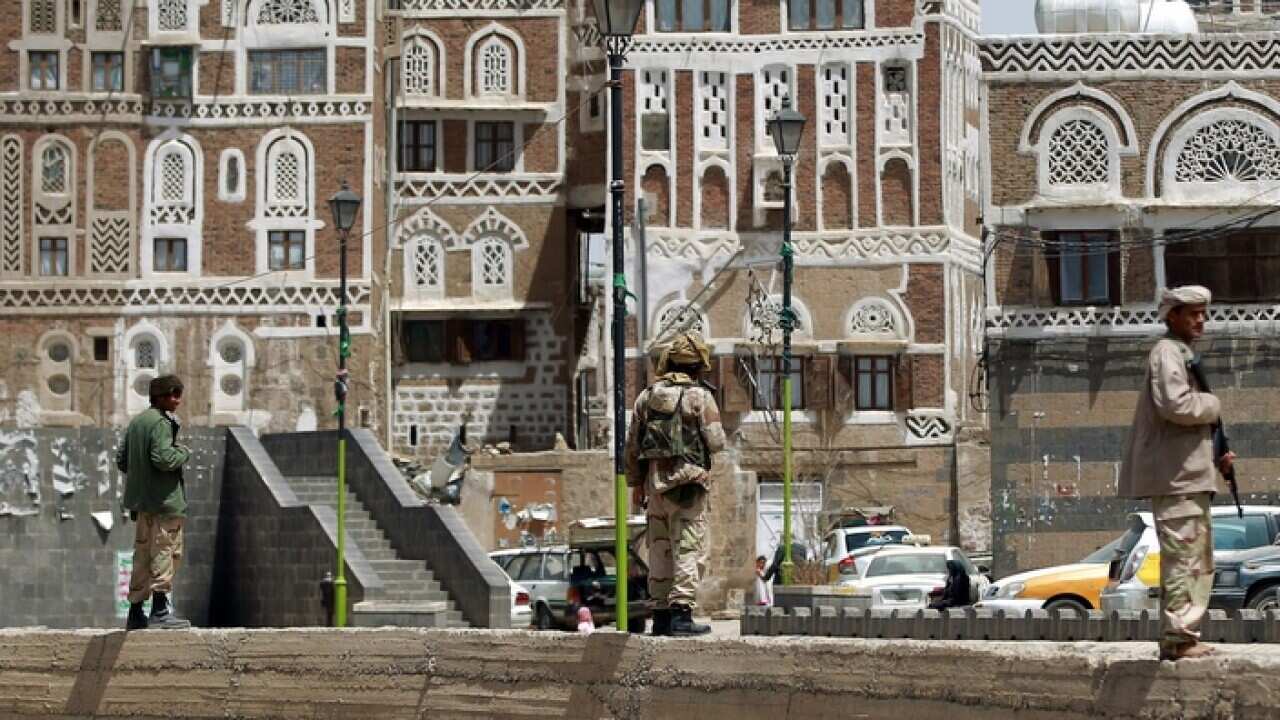"Catastrophic".
That's how the Red Cross is describing the situation in the Yemeni city of Aden.
Street battles between Houthi Shi'ite rebels and forces backed by militia loyal to fugitive President Abd-Rabbu Mansour Hadi are still raging.
And a Saudi-led coalition is continuing to shell rebel positions across the city.
Phillippa Carisbrooke reports.
Medical aid agency Doctors Without Borders says the humanitarian situation in Yemen is worsening every day.
Its medical team in Yemen's port city, Aden, is poised to help the wounded.
But the organisation says people are unable to get to hospital because of the fighting.
A spokeswoman for the Red Cross, Marie Claire Feghali, says air, sea and land routes have all been disrupted.
People are unable to escape, and getting essential goods in is very difficult.
(with translation) "We know that Yemen is a country that imports 90 per cent of its food supplies. And with the no-fly zone policy, and the closing of all routes to Yemen, some areas are suffering a shortage of food and water."
The United Nations children's agency UNICEF says the conflict is pushing Yemen towards a humanitarian disaster.
Spokesman Christophe Boulierac says children were vulnerable to malnutrition even before the outbreak of violence.
(with translation) "There will be, there already are, indirect deaths due to a lack of supply of medical equipment and I can't forget to also name the psycho-emotional damages which are very obvious."
The United States is speeding up arms supplies to the Saudi-led coalition resisting the advance of Houthi rebels.
US Deputy Secretary of State Antony Blinken says Saudi Arabia is sending a strong message to the Houthis and their allies that they cannot overrun Yemen by force.
"As part of that effort, we have expedited weapons deliveries, we have increased our intelligence-sharing, and we have established a joint coordination planning cell in the Saudi operations centre."
Turkey and Iran have backed opposing sides in the conflict.
Despite that, the countries' presidents held a joint news conference in the Iranian capital, Tehran, following trade talks.
Both steered clear of directly addressing their differences.
Turkish President Tayyip Erdogan said it would be a matter for discussion.
(with translation) "We should talk and negotiate an end to this bloodshed, these killings, together. We should bring the fighting sides together, and see how much we can facilitate these things, how we can mediate. We need to talk about these details. And I hope that we will achieve an outcome."
Share

